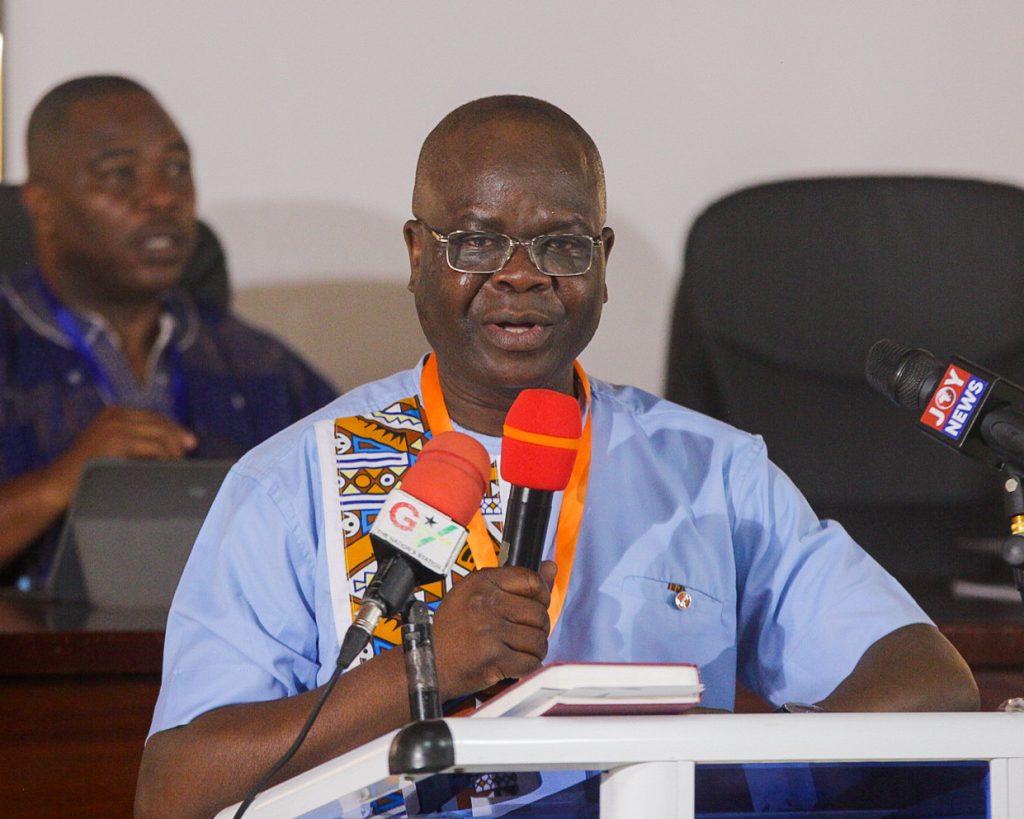By Edward Dankwah
Accra, April 03, GNA – The Ghana Evangelical Missions Association (GEMA) has reaffirmed its commitment to national development with the launch of a five-year strategic plan aimed at enhancing socio-economic activities across the country.
This was announced by Reverend Dr Godwin Kofi Ahlijah, the GEMA President, at the Association’s 34th Annual General Meeting (AGM) in Accra, which brought together mission leaders from various organisations nationwide.
Dr Ahlijah highlighted key activities undertaken by GEMA over the past year, underscoring the Association’s dedication to spreading the gospel and equipping missionaries with essential resources.
He said despite challenges, GEMA had made significant strides in promoting unity among churches and fostering effective mission strategies.
A key component of his report was the introduction of the comprehensive five-year strategic plan, which focused on several thematic areas, including capacity building for missionaries, digital evangelism, church planting, and strengthening partnerships with both local and international mission organisations.
“We are entering a new phase of growth and impact, where we must leverage technology, collaboration, and innovation to advance the work of the gospel,” the GEMA President said.
Dr Ahlijah emphasised the need for structured training programs to equip missionaries with modern tools for effective evangelism in a rapidly changing world.
The GEMA President said churches had played a significant role in Ghana’s socio-economic development, particularly in education, healthcare, and community development.
“People don’t realise that the church has been a fulcrum to socio-economic development in this country. In fact, without the church, Ghana wouldn’t have been Ghana,” he said.
He cited the contributions of mission agencies affiliated with GEMA, such as Gilbert Bible Translators and Fuel Vision, which provided scripture access in indigenous languages, and Meaningful Life International, which delivered healthcare and clean water to rural communities.
Dr Ahlijah called for a renewed partnership between the church and the government, recognising that while the state played a crucial role in development, it could not accomplish everything alone.

He urged government collaboration with mission agencies to reach underserved communities and accelerate national progress.
“For those who think government is a magic wand, it is not. Government needs the church,” he stressed.
He said it was essential to integrate faith with everyday life, ensuring that Christian values extended beyond the church into workplaces across the country.
Rev. Enoch Thompson, Vice Chairman of the Christian Council of Ghana, elaborated on the concept of building missionary connections between those who have received the gospel and those yet to hear it.
He said missionary connections were built first and foremost through people, by identifying key individuals within communities who are open to the gospel, such as local leaders, influential youth, or respected elders, and could facilitate gospel penetration into communities.
The Vice Chairman cautioned Missionaries to desist from entering a community without proper endorsement from these key stakeholders, to avoid resistance.
GNA
LAA